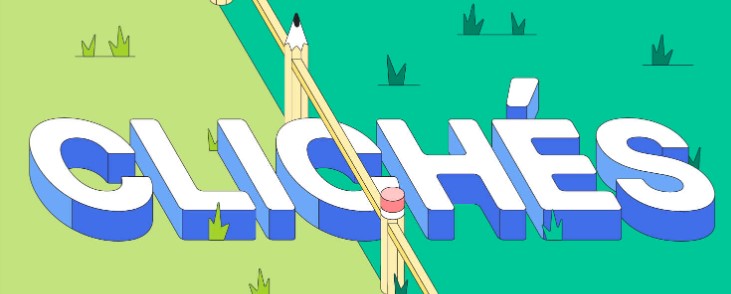
Let’s play with clichés.
It goes like this:
I’ll write some clichés with missing words.
You get to fill in the missing words. It’s sort of like Mad Libs.
For example:
More than one way to skin a cat becomes: More than one way to [verb] a [noun].
Ready? There are no wrong answers!
- It’s [verb ending in “ing”] [noun] and [noun]
- You can’t [verb] a [noun] by its [noun]
- The [noun] [verb] always [adjective or noun] on the other [noun]
- [Verb] your [noun] right
- It’s an uphill [noun]
- [Verb] between the [plural noun]
- A [noun] is only as [verb] as its weakest [noun]
- A [noun] and his [noun] are soon [verb, past tense]
- A [noun] of a different [noun]
- A [noun] of a [number] [verb] begins with the first [verb]
Whatever responses you came up are fine. Can you use any of your re-imagined cliches in your writing?
Clichés used:
- It’s raining cats and dogs
- You can’t judge a book by its cover
- The grass is always greener on the other side
- Play your cards right
- It’s an uphill battle
- Read between the lines
- A chain is only as strong as its weakest link
- A fool and his money are soon parted
- a horse of a different color
- A journey of a thousand miles begins with the first step
Definition of cliché
A cliché is a tired, stale phrase or idiom that, because of overuse, has lost its impact. What was once a fresh way of looking at something has become a weak prop for writing that feels unimaginative and dull. Clichés are what you write when you don’t have the energy or inspiration to think of a new way to express an idea.
More clichés. (scroll down)
Prompt inspired from the Sept/Oct 2022 issue of Poets & Writers magazine.